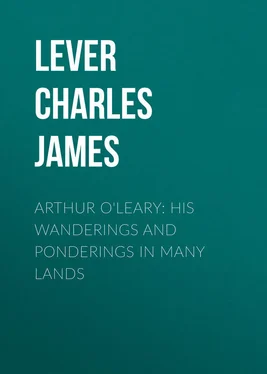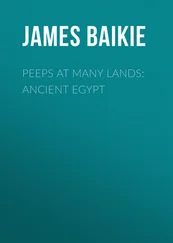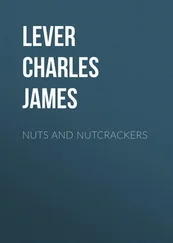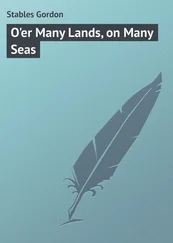Charles Lever - Arthur O'Leary - His Wanderings And Ponderings In Many Lands
Здесь есть возможность читать онлайн «Charles Lever - Arthur O'Leary - His Wanderings And Ponderings In Many Lands» — ознакомительный отрывок электронной книги совершенно бесплатно, а после прочтения отрывка купить полную версию. В некоторых случаях можно слушать аудио, скачать через торрент в формате fb2 и присутствует краткое содержание. Издательство: Иностранный паблик, Жанр: literature_19, foreign_antique, foreign_prose, на английском языке. Описание произведения, (предисловие) а так же отзывы посетителей доступны на портале библиотеки ЛибКат.
- Название:Arthur O'Leary: His Wanderings And Ponderings In Many Lands
- Автор:
- Издательство:Иностранный паблик
- Жанр:
- Год:неизвестен
- ISBN:нет данных
- Рейтинг книги:3 / 5. Голосов: 1
-
Избранное:Добавить в избранное
- Отзывы:
-
Ваша оценка:
- 60
- 1
- 2
- 3
- 4
- 5
Arthur O'Leary: His Wanderings And Ponderings In Many Lands: краткое содержание, описание и аннотация
Предлагаем к чтению аннотацию, описание, краткое содержание или предисловие (зависит от того, что написал сам автор книги «Arthur O'Leary: His Wanderings And Ponderings In Many Lands»). Если вы не нашли необходимую информацию о книге — напишите в комментариях, мы постараемся отыскать её.
Arthur O'Leary: His Wanderings And Ponderings In Many Lands — читать онлайн ознакомительный отрывок
Ниже представлен текст книги, разбитый по страницам. Система сохранения места последней прочитанной страницы, позволяет с удобством читать онлайн бесплатно книгу «Arthur O'Leary: His Wanderings And Ponderings In Many Lands», без необходимости каждый раз заново искать на чём Вы остановились. Поставьте закладку, и сможете в любой момент перейти на страницу, на которой закончили чтение.
Интервал:
Закладка:
We wish particularly to lay stress on the honesty of these our intentions – the more, as subsequent events have interfered with their accomplishment; and we can only assure the world of what we would have done, had we been permitted. And here let us observe, en passant , that if other literary characters had been actuated by similarly honourable views, we should have been spared those very absurd speeches which Sallust attributes to his characters in the Catiline conspiracy; and another historian, with still greater daring, assumes the Prince of Orange ought to have spoken, at various epochs in the late Belgian revolution.
With such prospective hopes, then, did we engage in the mystery of these same “Loiterings,” and with a pleasure such as only men of the pen can appreciate, did we watch the bulky pile of MS. that was growing up before us, while the interest of the work had already taken hold of us; and whether we moved our puppets to the slow figure of a minuet, or rattled them along at the slap-dash, hurry-scurry, devil-may-care pace, for which our critics habitually give us credit, we felt that our foot beat time responsively to the measure, and that we actually began to enjoy the performance.
In this position stood matters, when early one morning in December the post brought us an ominous-looking epistle, which, even as we glanced our eye on the outside, conveyed an impression of fear and misgiving to our minds. If there are men in whose countenances, as Pitt remarked, “villany is so impressed, it were impiety not to believe it,” so are there certain letters whose very shape and colour, fold, seal, and superscription have something gloomy and threatening – something of menace and mischief about them. This was one of these: the paper was a greenish sickly-white, a kind of dyspeptic foolscap; the very mill that fabricated it might have had the shaking ague. The seal was of bottle-wax, the impression, a heavy thumb. The address ran, “To H. L.” The writing, a species of rustic paling, curiously interwoven and gnarled, to which the thickness of the ink lent a needless obscurity, giving to the whole the appearance of something like a child’s effort to draw a series of beetles and cockroaches with a blunt stick; but what most of all struck terror to our souls, was an abortive effort at the words “Arthur O’Leary” scrawled in the corner.
What! had he really then escaped the perils of blubber and black men? Was he alive, and had he come back to catch us, in delicto – in the very fact of editing him, of raising our exhausted exchequer at his cost, and replenishing our empty coffers under his credit? Our suspicions were but too true. We broke the seal and spelled as follows —
“Sir – A lately-arrived traveller in these parts brings me intelligence, that a work is announced for publication by you, under the title of ‘The Loiterings of Arthur O’Leary,’ containing his opinions, notions, dreamings, and doings during several years of his life, and in various countries. Now this must mean me, and I should like to know what are a man’s own, if his adventures are not? His ongoings, his ‘begebenheiten,’ as the Germans call them, are they not as much his, as his – what shall I say; his flannel waistcoat or his tobacco-pipe?
“If I have spent many years, and many pounds (of tobacco) in my explorings of other lands, is it for you to reap the benefit? If I have walked, smoked, laughed, and fattened from Trolhatten to Tehran, was it that you should have the profit? Was I to exhibit in ludicrous situations and extravagant incidents, with ‘illustrations by Phiz,’ because I happened to be fat, and fond of rambling? Or was it my name only that you pirated, so that Arthur O’Leary should be a type of something ludicrous, wherever he appeared in company? Or worse still, was it an attempt to extort money from me, as I understand you once before tried, by assuming for one of your heroes the name of a most respectable gentleman in private life? To which of these counts do you plead guilty?
“Whatever is your plan, here is mine: I have given instructions to my man of law to obtain an injunction from the Chancellor, restraining you or any other from publishing these ‘Loiterings.’ Yes; an order of the court will soon put an end to this most unwarrantable invasion of private rights. Let us see then if you’ll dare to persist in this nefarious scheme.
“The Swan-river for you, and the stocks for your publisher, may, perhaps, moderate your literary and publishing ardour – eh! Master Harry? Or do you contemplate adding your own adventures beyond seas to the volume, and then make something of your ‘Confessions of a Convict,’ I must conclude at once: in my indignation this half hour, I have been swallowing all the smoke of my meerschaum, and I feel myself turning round and round like a smoke-jack. Once for all – stop! recall your announcement, burn your MS., and prostrate yourself in abject humility at my feet, and with many sighs, and two pounds of shag (to be had at No. 8, Francis-street, two doors from the lane), you may haply be forgiven by yours, in wrath,
“Arthur O’Leary.
“Address a line, if in penitence, to me here, where the lovely scenery, and the society remind me much of Siberia —
“Edenderry, ‘The Pig and Pot-hooks.’”
Having carefully read and re-read this letter, and having laid it before those whose interests, like our own, were deeply involved, we really for a time became thoroughly nonplussed. To disclaim any or all of the intentions attributed to us in Mr. O’Leary’s letter, would have been perfectly useless, so long as we held to our project of publishing anything under his name. Of no avail to assure him that our “Loiterings of Arthur O’Leary” were not his – that our hero was not himself. To little purpose should we adduce that our Alter Ego was the hero of a book by the Prebend of Lichfield, and “Charles Lever” given to the world as a socialist. He cared for nothing of all this; tenax propositi , he would listen to no explanation – unconditional, absolute, Chinese submission were his only terms, and with these we were obliged to comply. And yet how very ridiculous was the power he assumed. Was any thing more common in practice than to write the lives of distinguished men, even before their death, and who ever heard of the individual seeking legal redress against his biographer except for libel? “Come, come, Arthur,” said we to ourselves, “this threat affrights us not. Here we begin Chap. XIV. – ”
Just then we turned our eyes mechanically towards the pile of manuscript at our elbow, and could not help admiring the philosophy with which he spoke of condemning to the flames the fruit of our labour. Still it was evident, that Mr. O’Leary’s was no brutem fulmen , but very respectable and downright thunder; and that in fact we should soon be, where, however interesting it may make a young lady, it by no means suits an elderly gentleman to be, viz. – in Chancery.
“What’s to be done?” was the question, which like a tennis-ball we pitched at each other. “We have it,” said we. “We’ll start at once for Edenderry, and bring this with us,” pointing to our manuscript. “We’ll show O’Leary how near immortality he was, and may still be, if not loaded with obstinacy: We’ll read him a bit of our droll, and some snatches of our pathetic passages. Well show him how the ‘Immortal George’ intends to represent him. In a word, we’ll enchant him with the fascinating position to which we mean to exalt him and before the evening ends, obtain his special permission to deal with him, as before now we have done with his betters, and – print him.”
Our mind made up, no time was to be lost. We took our place in the Grand Canal passage-boat for Edenderry; and wrapping ourselves up in our virtue, and another thin garment they call a Zephyr, began our journey.
Читать дальшеИнтервал:
Закладка:
Похожие книги на «Arthur O'Leary: His Wanderings And Ponderings In Many Lands»
Представляем Вашему вниманию похожие книги на «Arthur O'Leary: His Wanderings And Ponderings In Many Lands» списком для выбора. Мы отобрали схожую по названию и смыслу литературу в надежде предоставить читателям больше вариантов отыскать новые, интересные, ещё непрочитанные произведения.
Обсуждение, отзывы о книге «Arthur O'Leary: His Wanderings And Ponderings In Many Lands» и просто собственные мнения читателей. Оставьте ваши комментарии, напишите, что Вы думаете о произведении, его смысле или главных героях. Укажите что конкретно понравилось, а что нет, и почему Вы так считаете.












